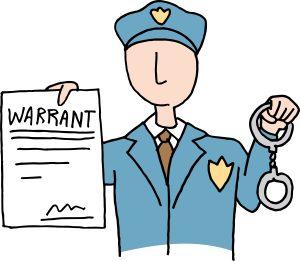In Florida, when the police search a person or any location and find drugs or other evidence of illegal activity, the defendant can challenge the search as illegal under the Fourth Amendment which prohibits unreasonable searches and seizures. However, not every defendant can challenge every search. There is a concept in search and seizure law called standing, which means that a defendant must have some possessory or ownership interest in the thing that was searched to be allowed to challenge the search in court. For instance, if the police search your house that you own, you are going to have standing to challenge that search because you have an obvious interest in your home. On the other hand, if you leave something on the bus and the police search that bus and find incriminatory evidence against you, you probably cannot challenge the search of that bus because you have no interest in the bus. And then there is a lot of situations in between that implicate the standing issue that will depend on the circumstances and the case law.
In a recent case near Jacksonville, Florida, the police were looking for a suspect due to an active arrest warrant. They went to a hotel room and found the subject and arrested him. After the arrest, the police saw what they considered suspicious activity in the nearby hotel room, entered the room, found cocaine and marijuana inside and arrested the occupant of that room for possession of illegal drugs as well. The criminal defense lawyer filed a motion to suppress the evidence of the drugs arguing that the police did not have a legal right to enter and search the hotel room without a warrant.
The state presented evidence that the occupant of the hotel room had rented the room as a juvenile and by using a false name so he had not validly rented the room. Since it was not his room, he had no standing to challenge the search of that room. The court disagreed with the state. The issue is not who rented or paid for the room. The issue is whether the defendant had a reasonable expectation of privacy in the room or whatever is searched. Hotel guests, whether they paid for the room or are just staying in the room, have an expectation of privacy in those hotel rooms. This is fairly obvious as if you are sharing a hotel room with a friend who paid for them hotel room, you would expect that room to be private from intrusion from others. The state also argued that the defendant lost his expectation of privacy in the room because he occupied it illegally because he was a minor and gave a false name to rent the room. However, the state could not provide any law that says it is illegal to rent a hotel room as a minor. Nor is it illegal to rent a hotel room under a false name. The state was correct that the defendant would have no expectation of privacy in a hotel room that was occupied illegally, but being a juvenile or using a false name was not illegal. If the hotel had learned that the defendant used a false name or was a juvenile and then told the defendant to leave the room, then the defendant would have been a trespasser if he stayed. Under those circumstances, he would no longer have a reasonable expectation of privacy and would lose his standing. But, as long as he was a legal occupant, he had standing and could challenge the search of the hotel room.

 Jacksonville Criminal Lawyer Blog
Jacksonville Criminal Lawyer Blog

